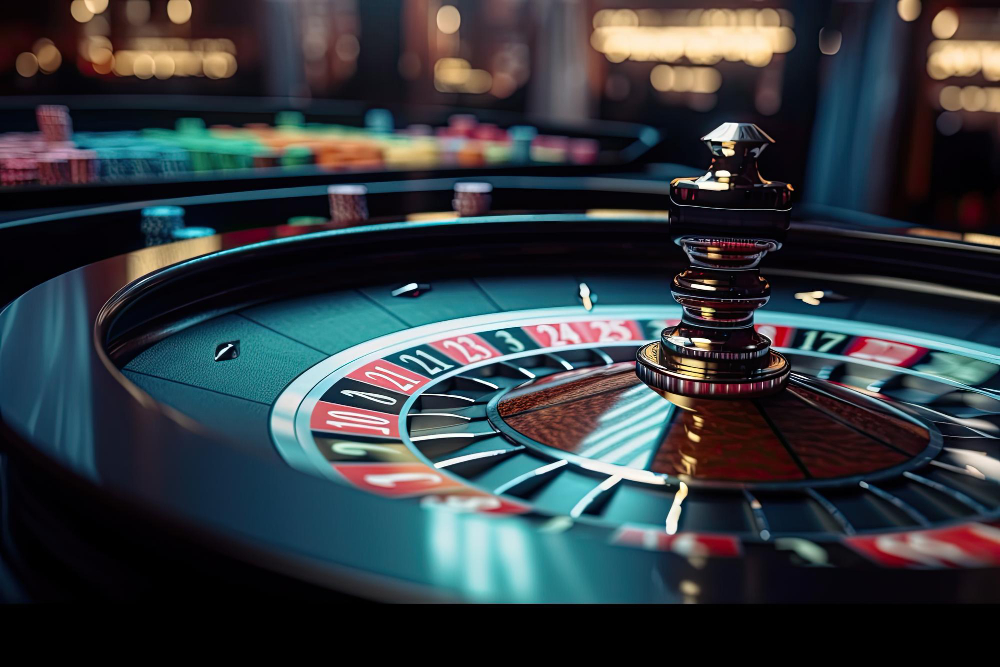What Is Return To Player In Casinos?

Return to player (RTP) refers to the percentage of wagered money that a casino game pays back to players over time. Expressed as a percentage, RTP represents the theoretical payout ratio for a game based on projections over thousands or millions of rounds of play. For example, if an online slot machine has an RTP of 95%, it is expected to pay out 95 pence for every £1 wagered on average.
RTP differs across casino games based on their rules and odds. Slots usually have RTPs of 90-99%. Table games like blackjack and baccarat have higher RTPs of 98-99% when employing optimal strategy. Roulette ranges from 94-97% RTP depending on the version. The higher the RTP, the lower the house edge and better the odds for players.
RTP is an informative statistic but not a guarantee of returns. Actual results vary in the short run based on luck. But the more spins or hands played, the closer earnings will match the stated RTP over time. Understanding RTP helps players evaluate games and make informed gambling decisions.
What Does RTP Mean?
RTP stands for return to player, expressed as a percentage that represents the theoretical amount paid back to players over time from wagered money. A game with 95% RTP will return 95 pence for every £1 gambled on average. RTPs differ across casino games – slots usually 90-99%. Higher RTP equals lower house edge, better odds. Understanding RTP helps players evaluate games, make informed gambling decisions. Players who understand what RTP is can then look for machines/games with better returns to players. Casinos rely on RTP maths as part of risk management, setting payout rates to maintain profitability. Players rely on RTP knowledge to maximise potential earnings, minimise losses. Return to player is a key metric determining whether games are worth playing or skipping. RTP empowers players and can help to level the playing field against the house.
How Do You Calculate RTP?
RTP is calculated by dividing the total payouts by the total wagers over an extended period of play. For example, if players wager £100,000 on a slot machine and it pays back £95,000 in jackpots over time, the RTP is 95,000/100,000 = 95%. The larger the sample size, the more accurate the RTP calculation.
For table games, RTP is derived from the house edge. If a game has a 2% house edge, the RTP is 100% – 2% = 98%. The house edge comes from the built-in rules and odds favouring the casino. Blackjack RTP is affected by player skill – basic strategy reduces the house edge.
RTP is a theoretical projection, not a guarantee. Results will vary in the short run based on luck. RTP requires aggregating outcomes across thousands or millions of bets. Casinos use advanced analytics to forecast and verify RTPs before releasing games. Regulators also audit and certify game RTPs for fairness.
While random in the moment, RTP is a fixed constant over the long haul. Understanding how it’s calculated enables players to interpret the stat accurately when choosing games and budgeting bankrolls. RTP reflects the average expected return, a key indicator of game quality.
How Can You Check The RTP Of A Game?
Understanding Return to Player (RTP) percentages is crucial when it comes to casino gaming. In the world of slots, it’s essential to check the stated RTP percentage in the game rules and paytables. When it comes to table games, the RTP is derived from the house edge and game odds. Keep in mind that your blackjack strategy can also impact the RTP, so it’s a good idea to consult basic strategy charts to understand house edges.
Reputable studios and casinos take their RTP seriously and have them audited and certified by regulators such as eCOGRA. When you’re playing online, look for certifications that guarantee fairness. Simulation sites provide tested RTP data gathered from computer models, but remember that published RTPs are still theoretical projections, not guarantees.
For those playing on land-based machines, you can usually find the RTP information displayed on the front. It’s also wise to monitor your own payouts over time and consider the sample size of your bets to gauge the practical RTP from your experience. Be cautious if you notice any alterations in the games, such as rule changes or payout adjustments that can affect the RTP without prior notification.
Transparent casinos make it easier for you to check the RTP through multiple visible sources. However, it’s always essential to verify independently before placing your bets. Cross-check the data and calculations from multiple authoritative references and scrutinise the reliability and consistency of reported percentages.
Having knowledge about RTP gives players critical insight into game equity and maximises their edge against the house. Diligently checking RTP is pivotal for long-term success in gambling.
Why Does RTP Matter While Playing Casino Games?
RTP plays a pivotal role in determining a game’s theoretical profitability and expected value, provided you know the RTP value. Moreover, it significantly impacts your strategic choices – for instance, embracing basic blackjack strategies can substantially lower the house edge and boost your RTP.
Incorporating RTP into your decision-making process allows you to allocate your bankroll based on the level of risk and the expected return. Surprisingly, casual players often overlook RTP even though it can profoundly affect their results. Advantage players, on the other hand, skillfully leverage RTP data to maximise their edge and enhance their chances of winning.
Understanding the nuances of RTP percentages levels the playing field against the typically opaque casino odds. Therefore, arming yourself with RTP knowledge becomes a critical factor for long-term success. It’s imperative to scrutinise RTPs diligently and calculate their impact. To ensure accuracy, source figures from trusted certifiers like eCOGRA, and cross-check percentages or derive your own estimates based on personal experience.
Favourable RTPs can help you extend your bankroll, while adverse RTPs can deplete it faster than you might expect. Make informed decisions by weighing risk and reward, using RTP as your guiding beacon. Transparent RTP data empowers players and narrows the information gap between players and casinos. Mastering RTP fundamentals can significantly shift the odds in your favour.
Summary Of What Is Return To Player In Casinos?
RTP is the amount of money that a casino game is expected to pay back over thousands/millions of games. RTP can be used to help you work out which games have a higher chance of paying out.






